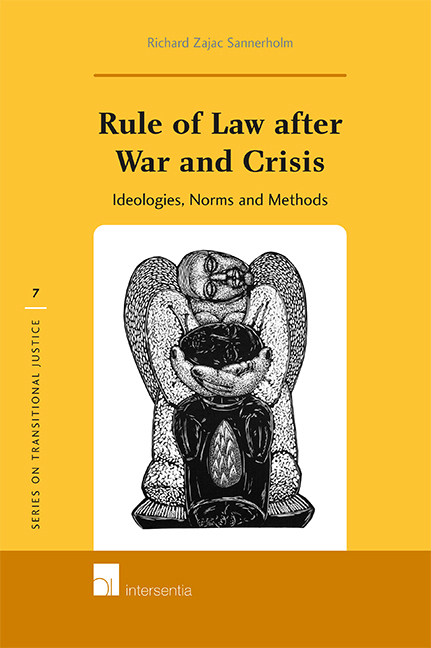2 - Rule of Law Ideologies and Objectives
Published online by Cambridge University Press: 16 December 2020
Summary
INTRODUCTION
The previous chapter provided a context to war-torn and crisis societies through the discussion on crisis anatomy and the overall structure of international responses in rule of law reform. This chapter examines the objectives behind rule of law interventions, and how the concept of the rule of law is applied and understood by international actors. The reasons behind a discussion on conceptualisation are straightforward. How the rule of law is interpreted and defined at legal and policy levels has a fundamental influence on the level of implementation – that is, on how the concept is put to practice and on what type of reforms that are given priority. Simply put, precise and clear conceptions provide for an easier understanding and compliance, with breaches more clearly observed. Conversely, a lack of clarity greatly diminishes understanding and compliance. As a concept, however, the rule of law does not lend itself to an effortless description.
Absence of clear guidelines on what the concept means for rule of law officers and related staff on the ground is illustrated in a survey conducted by the Centre for OSCE Research. The survey targeted 18 field missions of the OSCE, asking questions to their personnel such as whether they based their activities on any particular rule of law definition or if they had criteria for distinguishing rule of law tasks from those of human rights and democratization. The results from the survey describes the absence of rule of law guidance in the field and, one can assume, is not isolated to the perceptions of OSCE staff but rather symptomatic for most actors involved in rule of law reform:
The field operations have no recourse to a standardized, conclusive definition of the rule of law or rule-of-law promotion. A number of field operations (30 per cent) work without any definition whatsoever. The majority, however, define the rule of law or rule-of-law-promotion, some with reference to KofiAnnan's report for UN rule-oflaw promotion, the Copenhagen Document (1990), or the Ljubljana decision […], and others according to their own preferences.
- Type
- Chapter
- Information
- Rule of Law after War and CrisisIdeologies, Norms and Methods, pp. 39 - 78Publisher: IntersentiaPrint publication year: 2012

